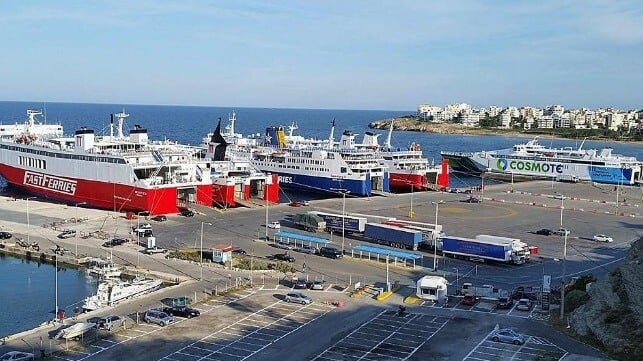Many Greek Ports Are Inadequate Says Masters Group Calling for Investments

Many of Greece's ports are inadequate and sometimes even dangerous according to the trade association representing Greek merchant marine masters. They are calling for increased attention and investment into the ports saying that some of the problems are simple neglect while others will require significant investments.
The Panhellenic Union of Merchant Marine Masters (PEPEN) submitted its annual report to the Ministry of Shipping and Island Policy at the end of July. The report details the group says, “The daily problems faced and recorded by the masters in all the ports of Greece.” The report is based on the observations submitted by masters who are members of the association.
It is not the first time the group has called for greater investment in the ports. They regularly also submit letters to the local port authorities citing issues. PEPEN also responds on behalf of its members to a broad range of issues and when the port authorities raise questions.
The Greek government says it recognizes some of the challenges and announced plans for a major investment program. They plan to spend more than $350 million at more than 50 ports.
Experts said the problems are longstanding and in part stem from the financial crisis Greece experienced in the 2010s. Ports have faced years of neglect as well as lacking investments to keep pace with growth in shipping and the demands of newer, larger vessels.
The 2024 annual report details the problems at each port. They cite a broad range of infrastructure concerns as well as problems with policing and control of the maritime traffic. The media highlights the problems become especially acute at this time of the year when Greece is experiencing peak tourism. Interisland ferries and vessels sailing from the mainland to the Aegean islands are filled with summer tourists.
PEPEN says its members in some cases “have to thread a needle,” to dock and maneuver their vessels. The complaints include ports that have silted up over the years meaning they no longer have adequate depth restricting maneuvering. They also cite the lack of controls over recreational boats and especially large yachts, which they said moor near the entrance to ports creating navigational challenges for commercial shipping.
Some of the issues are due to the number of ships trying to access some of the ports while others are infrastructure ranging from lack of lighting to inadequate park areas for cars, and passenger terminals that do not have adequate, if any, waiting areas for passengers before boarding the vessels.
The problems they said are not limited to the large ports and they contend smaller ports have been especially neglected. Even in a midsized port such as Kea, they are calling for lengthening the pier and improving the turning basin.

that matters most
Get the latest maritime news delivered to your inbox daily.
The report cites examples of piers that are crumbling and lighthouses and signal lights that need to be replaced or simply lack a working lightbulb.
PEPEN highlights a long list of problems calling for actions by the government to improve the ports. They said some of the issues are critical for safety and must be addressed immediately while recognizing that some issues require more time for planning and investment.
